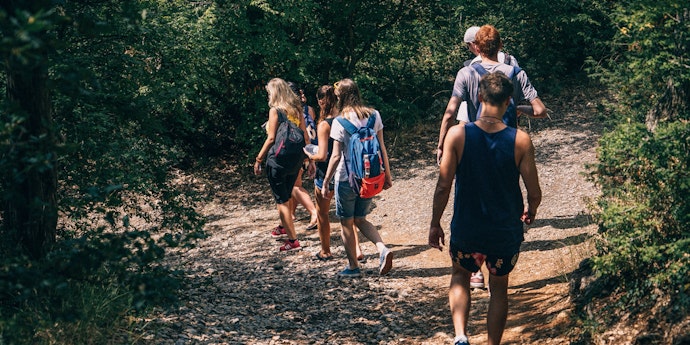When standing in the middle of Manhattan, it's easy to think the city goes on forever. In fact, the city was built on, and is still, surrounded by a diverse set of ecosystems. Because of our wonderful location, there are tons of opportunities for classes to take field trips to see first-hand examples of habitats, ecology, ecosystems, animals, the food chain and the water cycle.
There are a ton of different places that give you and your class a chance to get in, on or near the water. Read on for five of our favorites, or search yourself here.
The Bronx River Alliance
Water Quality Monitoring
When participating in the Water Quality Monitoring field trip on the Bronx River, students test different aspects of the water and figure out what makes a healthy water way. Later, they are able to think more deeply about how on land choices effect the quality and contents of the river. This gives science classes of all ages the chance to be a citizen scientists.
Level: Grades K-12
Cost: $100
Duration: 1.5 hours
Ally Pond Park
Ecosystems of Ally Pond Park
Through Alley Pond Park's Ecosystems field trip students study the four ecosystems found in the park: pond, forest, salt marsh, and meadow. Science students are encouraged to learn about the "components, trophic relationships, energy flow and the cycling of chemical elements found in these units."
Level: Grades 9-12
Cost: $250
Duration: 1.5 hours
Brooklyn Bridge Park Environmental Center
Weather on the Water
Science students participating in Brooklyn Bridge Park Environmental Center's Weather on the Water field trip will create their own instruments and use them in conjunction with simple maps and a scavenger hunt to understand the water cycle and the weather of the day. This field trip is a great chance to help students apply what they've been learning about the water cycle to the real world.
Level: Grades K-1
Cost: $125, Scholarships Available
Duration: 1.5 hours
Hudson River Park
Food Web Fun
When participating in Hudson River Park's Food Web Fun field trip students get the chance to use microscopes to observe different plankton species. With a clear picture of plankton in their mind, they discuss the role plankton plays in the Hudson River Food Web. Back at school, this field trip can provide a wonderful touch point through out the science curriculum.
Level: Grades 2-5
Cost: $200
Duration: 1.5 hours
Bonus: In Your Backyard!
The Park
Don't underestimate the urban ecosystem present in your local park. Have students step outside each day and record the plants and animals they see. What do they notice about these animals? How do they interact with the environment? What food web is present right outside your school, and how do students play into it?
Explorable Places is a new online platform that helps you find the best field trip for your students. Click here to search by subject, grade, price, location and accommodation. You'll find just what you are looking for.
